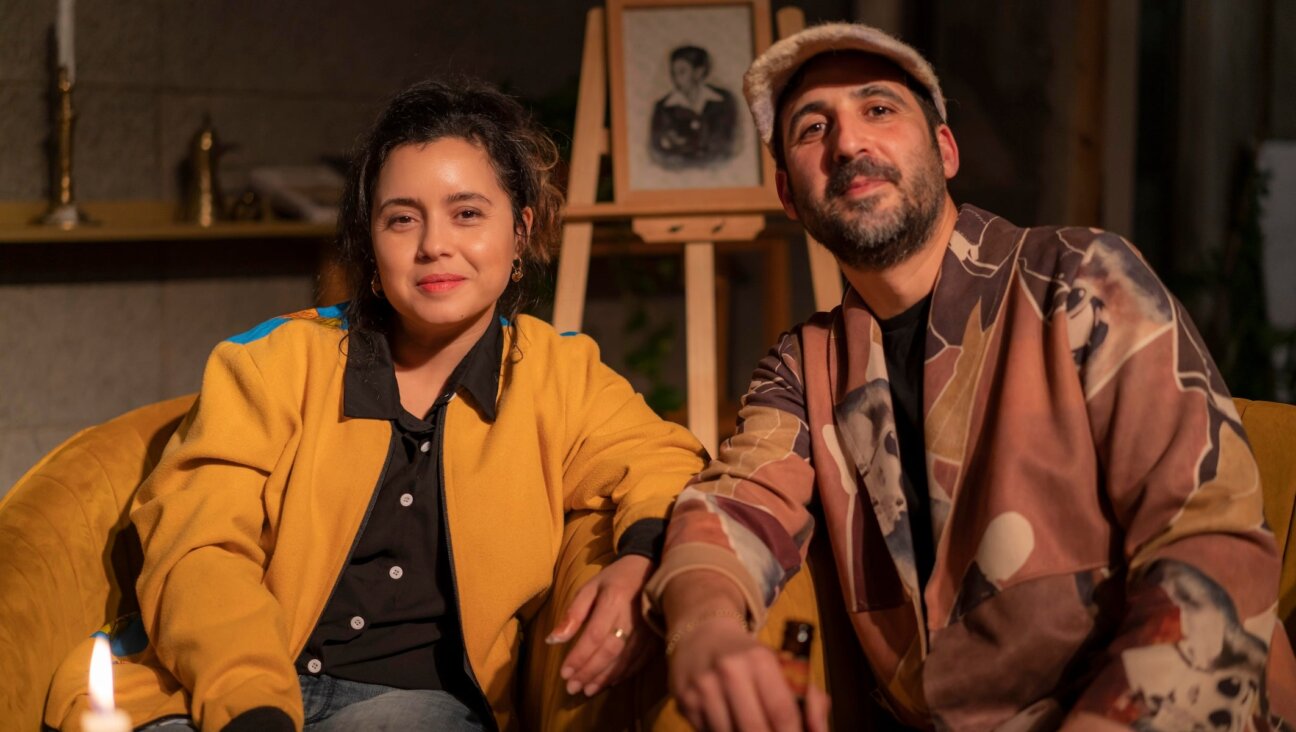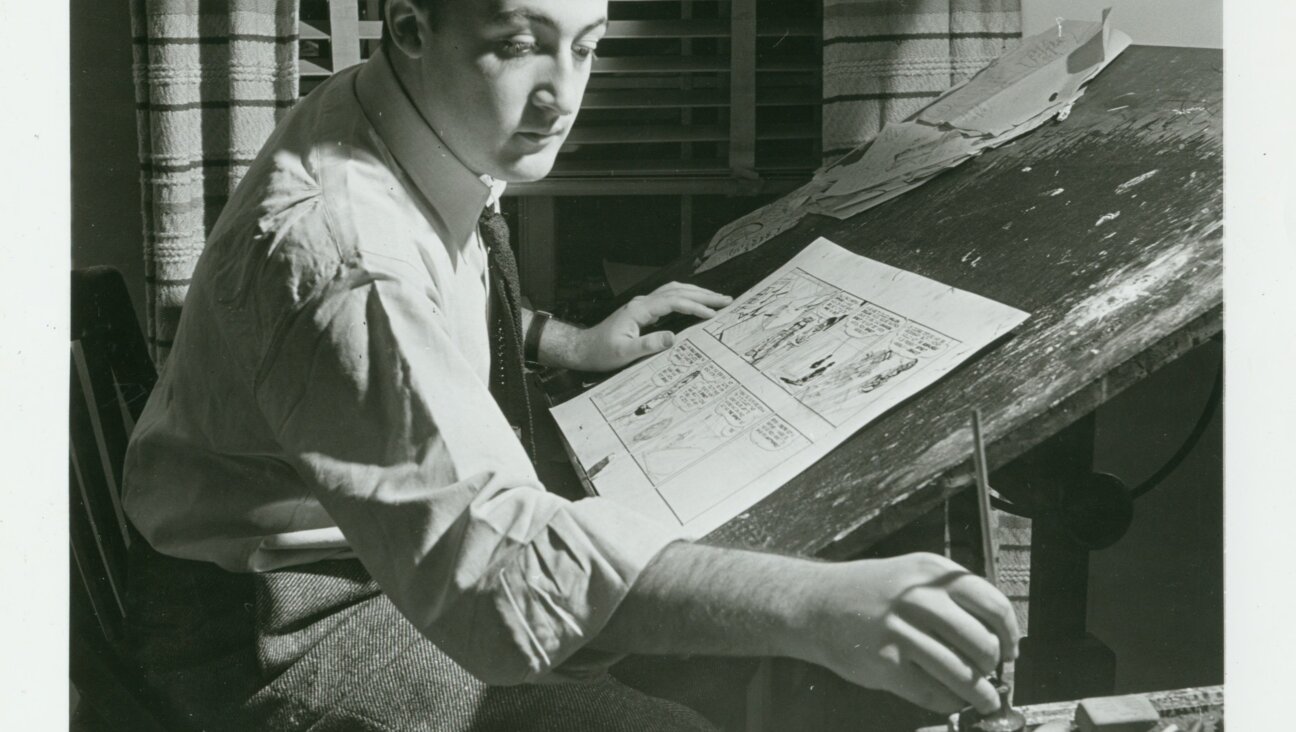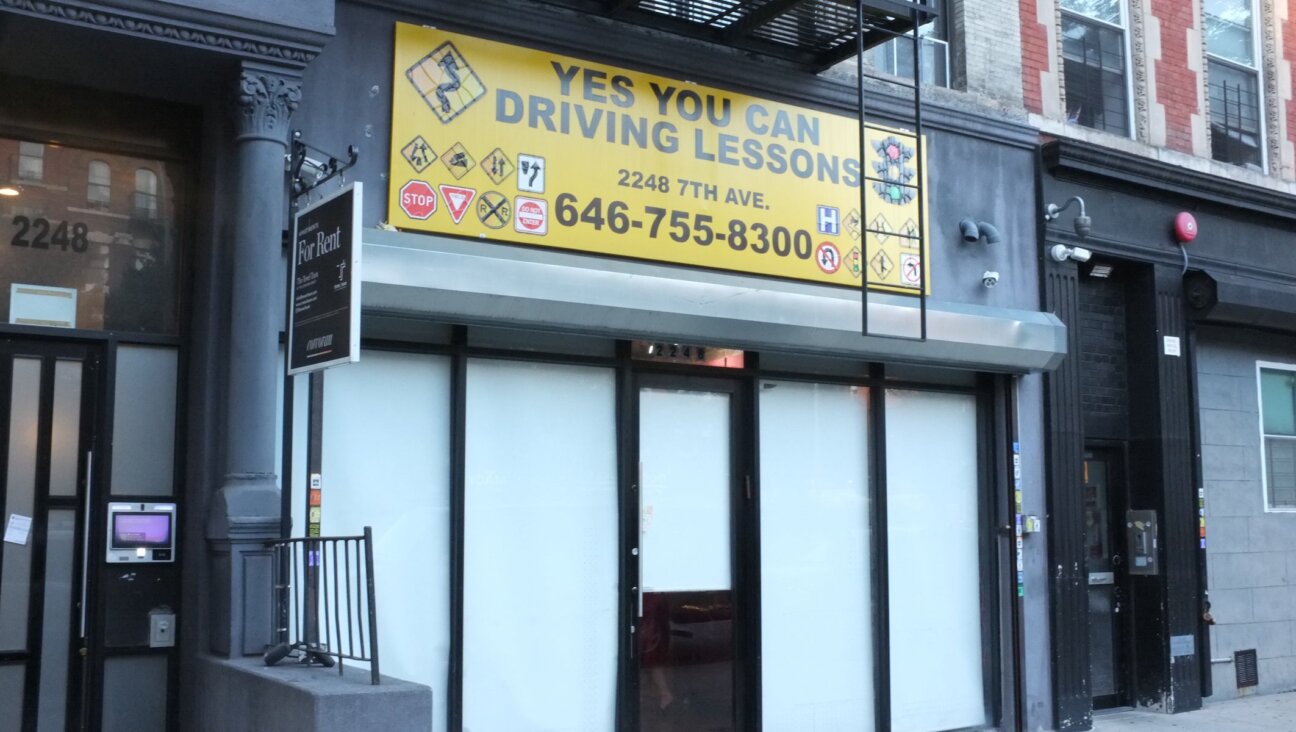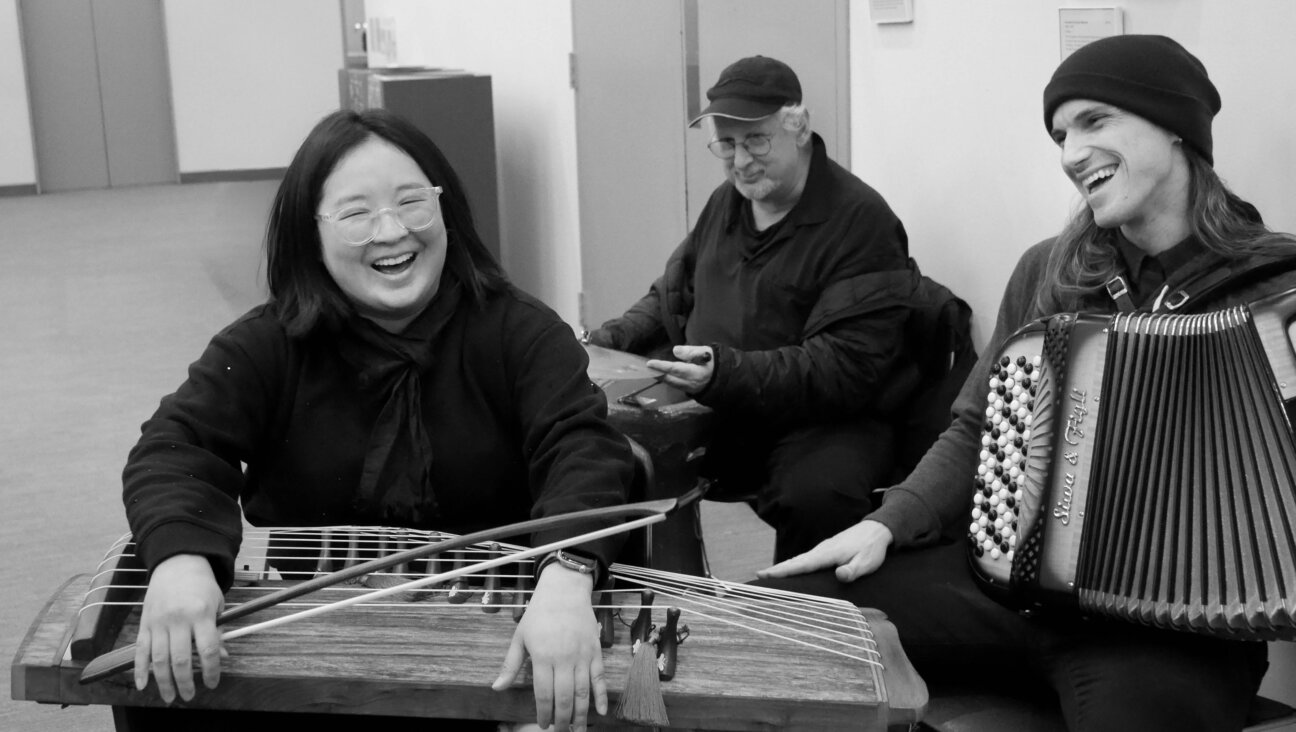‘His Russia is now illegal in Russia’ — how exiled musicians are finding a home away from home
JetLAG bills itself as the largest festival of Russian, Slavic, Balkan and East European music in the US
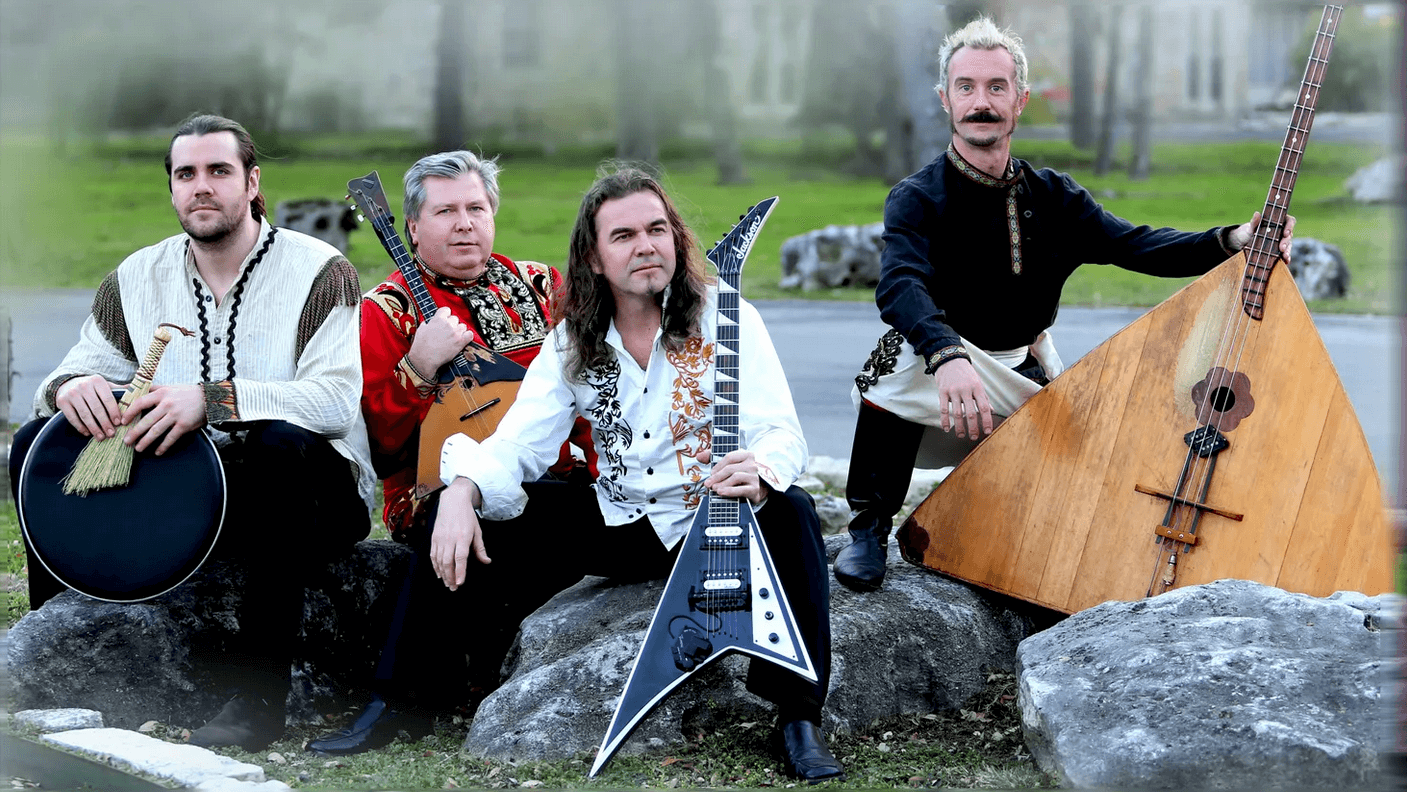
Graphic by Angelie Zaslavsky
When the JetLAG music festival kicks off Friday night in the Catskills, one of the newly arrived refugees from life in wartime Moscow will be there to perform. But another who had planned to play will be home in California preparing for his immigration hearing. Both have impressive musical pedigrees.
On Saturday night, Alyosha Levstein will take the stage at JetLAG, which is held along a mile-long strip of land along the Delaware River at the 300-acre Peaceful Valley campsite in Downsville, New York, and bills itself as the largest festival of Russian, Slavic, Balkan and East European music in the U.S. The 24 year-old former Muscovite has serious musical yichus. His father, Anatoly Gerasimov, was a jazz composer and reed player who performed with Duke Ellington, Thad Jones and Toots Thielemans.
Levstein’s grandfather, Alexey Khvostenko, was a Russian beatnik who was active in the St. Petersburg underground. He recorded several albums and was part of the bard song movement, which dates back to the early 1960s. Its practitioners sang poetry while accompanying themselves on guitar. Levstein had been carrying on the bardic tradition in Moscow but did not make his living as a professional musician.
The war in Ukraine prompted Levstein to flee Russia. He arrived in the U.S. March 5. His younger siblings, a brother and sister, went to Israel before he left. His 48 year-old mother was the last member of his immediate family to leave.

“Sometimes I wonder why I moved here and not Israel because all of them are there,” said Levstein, who told me that the fact that he wouldn’t have to speak Hebrew made coming to America more palatable to him.
Levstein now lives on a farm in Maryland owned by friends of his maternal grandmother, a well-known attorney in Moscow.
“She was in charge of sending me here,” he said. “She’s in charge of the whole family because she’s the wisest.”
Eager to contribute his labor to his hosts, Levstein, who worked as a graphic designer in Moscow, has helped build a fence, work in the garden and mow the lawn.
“I’d really like to become an American citizen and give something to my country,” he said, quickly adding, “I mean to this country.”
Levstein took his surname from his great-grandmother. He started using it several years ago instead of his famous father’s surname because, he said, “I really wanted to be something else, not just the son of my father.”
Vitaly Prismotrov, a 39 year-old bass player, will not be part of the party this weekend at JetLAG. He had been planning to perform with a band called The Flying Balkan Laikas but pulled out last week because he felt he needed to stay home and work on his immigration case. He left Russia shortly before the war in Ukraine started and went to Mexico. His wife and 18-year-old daughter came to the U.S. before him.
Prismotrov crossed the border in Arizona Feb. 27 and was promptly taken to a detention camp before a Russian musician agreed to sponsor him and found him a place to live in California.
Speaking through an interpreter, Prismotrov said that he had to leave because of his political views. “I was harassed,” he said. “Once I spoke out about Putin, I didn’t have any option. Nothing will change while Putin is president.”
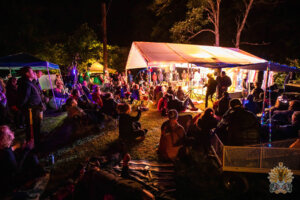
Prismotrov first came to America in 2008 when he performed with Dolly Parton’s band at her Dollywood theme park in Tennessee. In Moscow he worked as a sound man for Karlinov Most, a popular Russian folk-rock band, and also backed up a number of top Russian music acts, including Gorky Park, the first Russian band to get airplay on MTV, and Levan Lomidze, lead singer for a blues band called Blues Cousins.
He says he hopes to get more work as a musician but knows how to repair cars, so he’s willing to do automotive work to pay the bills.
But super talented musicians from Russia can struggle once they get to the U.S. Sergey Vaschenko, a conservatory-trained balalaika player who taught college before emigrating, now drives a truck to pay the rent.
One Russian rocker who has managed to make a music career for himself is Zhenya Kolykhanov; he changed his name to Zenhya Rock. He is the lead guitarist in the Flying Balkan Laikas, who are performing Saturday night at JetLAG. All of the band’s members are from Russia with the exception of Rock’s wife, who is from Turkmenistan.
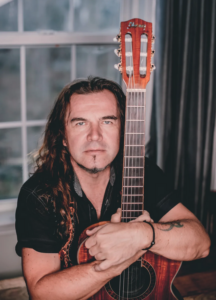
“I moved from that nightmare in ’91, bro,” he said of his Russian homeland. “I know people who are planning to come to the U.S., but it’s nearly impossible to escape the regime. You’ve got to be sneaky-tricky. You can’t just hop on a bus and say goodbye.”
JetLAG will suffer this year because some Russian acts were unable to get visas for travel to the U.S. Among the past festival staples who will be missing are N.O.M., an experimental rock band; the Russian reggae artist Gerbert Morales; Vanya Zhuk, who plays everything from garage rock to Roma and Klezmer music; and Leonid Fedorov, frontman of the legendary Russian alt-rock outfit Auktyon.
“We would be happy to have them and they would be happy to come,” said JetLAG’s creative director, Pavel Lion. “This is a shame. It’s a pity.”
Lion performs as Psoy Korolenko and sings comical songs with plenty of multilingual wordplay, a testament to his doctorate in Russian literature and fluency in several languages. Along with the Toronto historian Anna Shternshis, he’s involved in the Yiddish Glory project, working on hundreds of Yiddish songs from World War II. A recording of songs from the collection was nominated for a Grammy Award for best world music album. In the fall, Lion will be a visiting lecturer at Dartmouth College teaching Russian folklore.
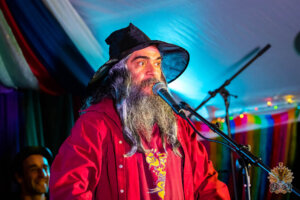
During his set at JetLAG, Lion will perform a Ukrainian folk song.
“It’s a love song that sounds like it casts a spell,” he said. “I kept it from childhood.”
Daniel Kahn, a Berlin-based bandmate of Lion’s in the critically acclaimed Brothers Nazaroff klezmer band, said that Lion is “legendary in a Russia that is now nearly impossible to find in Russia.”
“His Russia is now illegal in Russia,” Kahn said. “But when he performs, it exists, and there is not only danger but hope. Dangerous hope.”
Lion became a U.S. citizen this spring and lives in New Jersey with his partner Vicky Feldman, who co-founded JetLAG and runs it with her daughters and other family members and other friends. He doesn’t rule out a return to Russia some day.
“It’s home, too,” he said.
